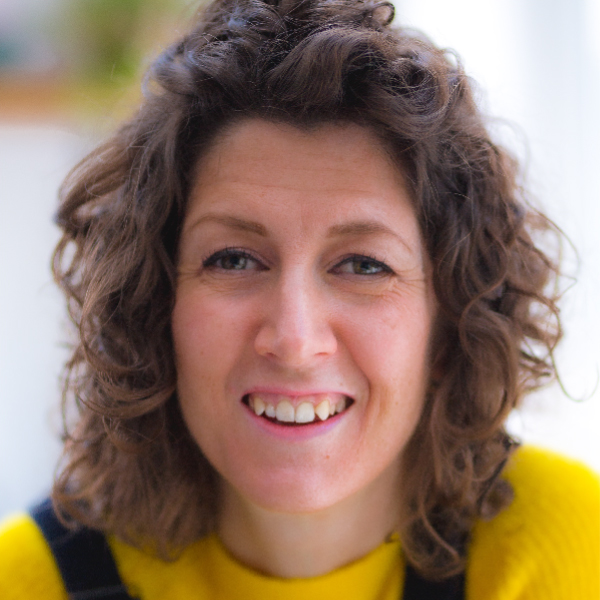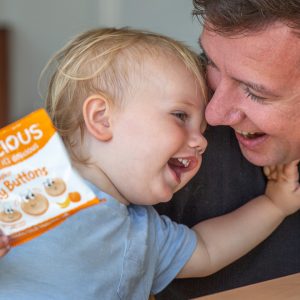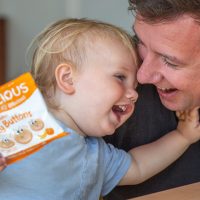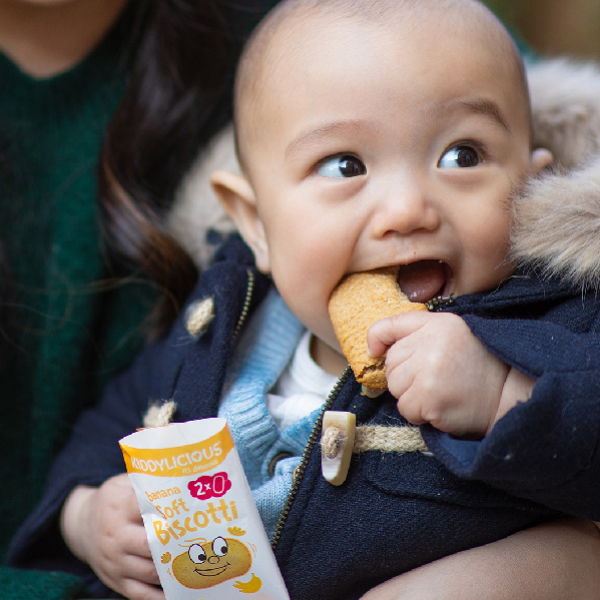
As a qualified teacher, mum, parenting coach and all-round Early Years expert, Sophie has a wealth of practical, real life experience to share with parents.

As a mum of two and a registered GP, Stephanie has seen more than her fair share of little ones! She has lots of practical tips and professional know-how on hand to help parents.

Laura is our nutrition whizz – bringing her expert advice and experience from working with chefs, schools and nurseries to the Kiddylicious expert panel.


Sophie:
When you’re going out of the house for a day out, you are out of your normal routine with regards to feeding and sleeping. Routine is important for little ones and I think that it’s about finding that balance, as you don’t want to stress about when you should be eating. Though we don’t have to stick to the same routine rigidly, it’s nice to be able to have a similar one. Because that’s when children become overtired and overly hungry, leading to tantrums.
Laura:
I think you need to keep that routine in the back of your mind but try to enjoy the day doing something slightly different. In the back of your mind though, you’re always thinking about nap time, and perhaps when they might start to get hungry!
Sophie:
Using the car as a tool for napping is great. People can get so fixed on nap routines and feel that it’s very important to stick to. Parents are so used to being in the house all day and having a routine, they can be scared to break it. Some people think that napping in the car is not okay, when actually it’s perfectly acceptable. You can use the outward journey as the morning nap, and plan everything else around it. It shouldn’t be too long a journey, because you’ve got to bear in mind that babies shouldn’t be in the car for long periods of time in their car seats.
Stephanie:
We try to do something similar, using that journey time as a nap time. Alternatively, you can get out first thing in the morning, get everyone up and ready and then just get out of the house and then than use the return journey for a nap.


Stephanie:
We have noticed when we go out to the woods or another open space at the weekend, our little one tends to need an extra mid-morning snack to get her through. You forget that they’re running around and burning all of this energy. Suddenly, we’ll notice that her energy plummets and goes a bit flat and can get a little bit grumpy and it’s not even lunchtime yet. That’s why packing extra snacks is so helpful, because inevitably they will get hungry quicker if they’re active.
Sophie:
They definitely do get hungry quicker. Even if they’re not moving yet, babies will get hungry because their brain is working so much trying to process everything that’s going on.
Laura:
For longer-term energy, protein can be really satiating and satisfying for the appetite; things like cheese, yogurt, little slices of pancake or boiled egg. That can be a bit more satisfying than fruit and keep them going to lunchtime. Try to get some protein into one of the snacks in any day. Nut butter is a good one to go on a rice cake or cracker because it’s that little bit more filling.


Sophie:
It’s very important to prep and plan. It’s also important to prepare the children for any kind of change, whether it’s a big thing like moving house, or if it’s just that you’re going for a day out or going to the grandparents’ for the weekend. It’s really important for them to mentally plan their day and know what’s going to happen. For all children, and even non-verbal babies, I think it’s important to talk to them and tell them where you’re going and what you’re doing.
Laura:
I would pre-warn my son, absolutely. I know he’s a bit older, but just giving him a heads-up by talking about the days of the week, that in so many days’ time, we’re going to be going off to grandma’s is good.
Sophie:
Sometimes choosing the time to say things is important. Don’t tell them just before bedtime! They’ll be too excited.
Staphanie:
If we imagine what we’re like, as adults, we know that if someone just put you into a car, you’d want to know where you were going. We talk about events that are going to happen, such as fancy-dress days or something that’s happening at nursery, we talk about it and ask them about it. If you’re taking food with you, have a discussion such as, do you want to help me make the snacks, what kind of things do you want? Should we take this fruit or that fruit – this can help them get involved.
The food we will take with us on a day out will inevitably be a little bit different from what we have at home. So for example, you might do pasta sauce or noodles at home but they are less easy to transport. We’ll tend to have sandwiches or pastry pinwheels. It’s not that it’s different because it’s special, it’s more about what’s easy.
Sophie:
It’s important to understand that young children don’t really have a concept of time, so maybe you don’t have to tell them two weeks before you’re going on a trip, maybe tell them two days before you go. At the beginning of the week, you can do a little countdown – depending on their age.